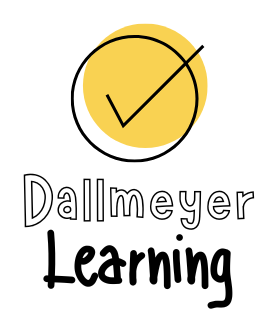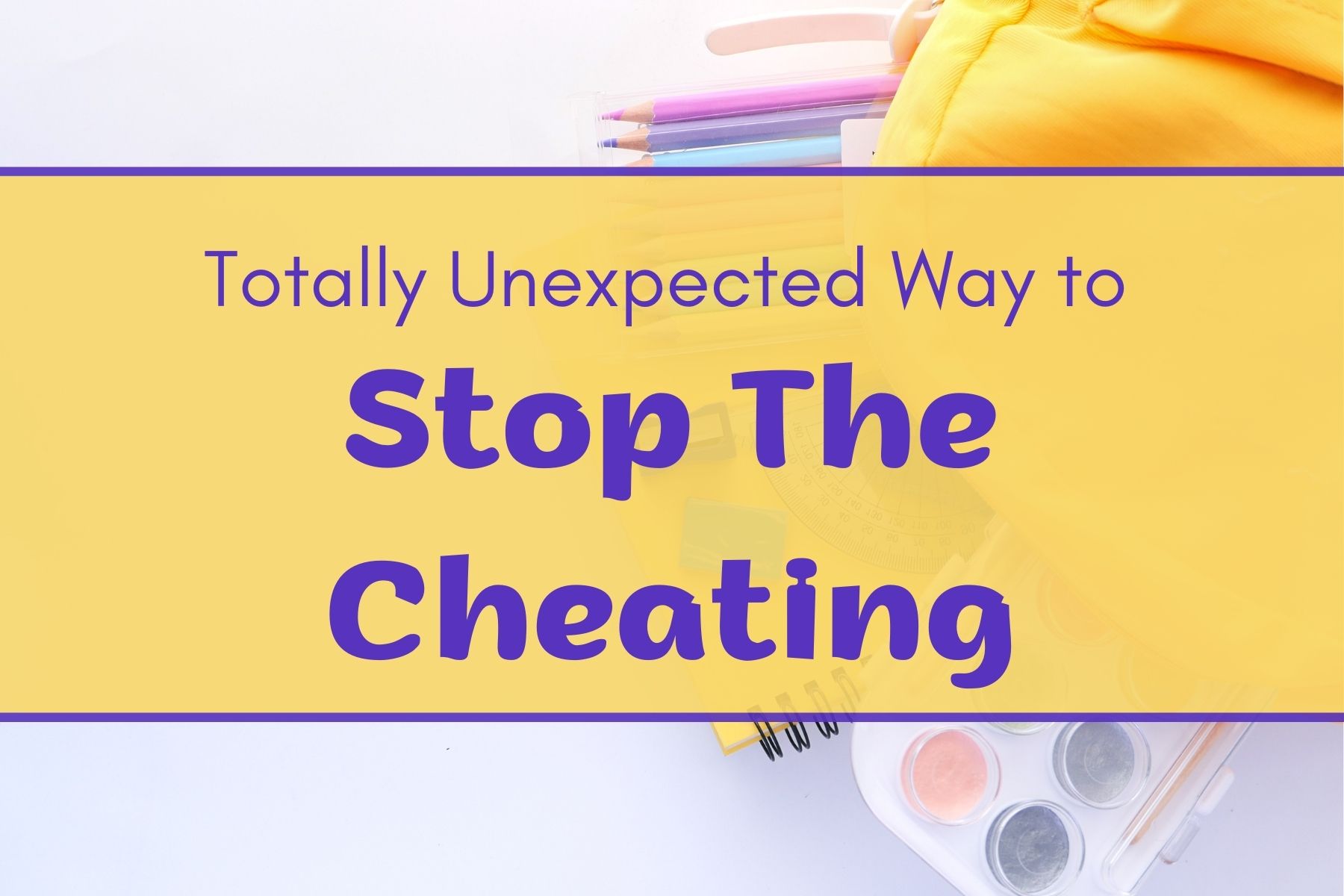This is a bold statement, but I can dramatically cut down on how much cheating is happening in your math classroom.
I have a system that I use in my classroom to address cheating head on.
I am a math interventionist and classroom teacher and I have worked with underachieving math students for over 6 years. Cheating is a tough one and it really hurts the teacher’s feelings when we take it personally, but there is a better way.
Many articles I have seen on cheating talk about how to write cheat-proof problems, screen monitoring software, lockdown internet tools and advice on seating charts, but I have a different approach to stopping (or at least decreasing) cheating in your math class.
The secret is we have to just tell our students that we know they are cheating.
Yes, we are going to stop playing the game and ask students to anonymously tell you if they are cheating on math, then you will discuss the results.
Make an electronic form or worksheet with these True/False questions:
- It is normal to cheat in math.
- The only way to pass math is to cheat.
- Using a calculator is cheating.
- Cheating in math is different from cheating in other classes.
- I cheat on math assignments frequently.
Collect the answers and it is time to discuss them with the whole group. Get it all out in the open.
I recommend that you use an electronic form or quiz platform so that you can do this activity in one class period.
You can use these slides I made: Cheating Discussion Slides (I made a plain version and a fancier version in this deck, hope that is helpful!)
You are going to be shocked. (If you get really interesting results email me! I would love to talk about it!)
Why Do Students Think Cheating Is Normal
Students have a very different point of view on cheating; many think cheating is not only normal, but necessary to pass math class.
Having a very public cheating discussion can help change student views on math practice and math learning if you can keep the environment supportive and open.
Start by displaying the student results for one question at a time and assure students that you are not looking to punish or get anyone in trouble. Remind them that you are responsible for teaching them and you want to do the very best job you can.
Tell them you want honest answers and ask the following questions:
Are you surprised by these answers? What do you think about this?
Students will share valuable information that can help you understand the reasons students are cheating in your class.
You can extend this activity with this Math Anxiety Workbook I wrote!

This workbook covers a week of short lessons (10 ish minutes) designed to help you and your students discover reasons for cheating and create a classroom culture where wrong answers are not feared.
The workbook includes:
- Cheating Fill-In-The-Blank Notes
- 4 Easy Ideas to Not Cheat
- Math Anxiety Self-Assessment
- Test Anxiety Self-Assessment
- Math Mindset Support
- Teaching Math Study Skills
- Templates for Student Study Plans
If you find this activity helpful in your classroom, you will love the math anxiety workbook.
It is nine pages long and contains exciting information that can change your student’s view of themselves as math learners.
These quick activities will change the environment of your classroom, build classroom culture and change the game for engagement.
I love how this book creates a shared language around the math struggle happening in your classroom.
Do not miss this activity for Test Prep Season! (Don’t forget your math interventionist or coach, this resource is great for small or large groups).
Why Do Students Cheat?
No one likes to feel confused or frustrated, we all do different things to avoid these feelings, math students turn to PhotoMath.
Students cheat to avoid the negative emotions they feel when they cannot easily solve a problem.
We need to be telling students that it is normal to struggle with math and that getting problems wrong is not bad.
I always tell students that the goal in math is to make a mistake! This is how we learn, this is how we find out what we do not know. Mistakes are the goal.
If you are having a lot of issues with cheating, consider celebrating mistakes in your class. Give stickers, bonus points, or whatever works for your students. This can invite students to struggle with difficult problems.
When student’s leave class confused, they are more likely to cheat UNLESS you give them some other options.
You can find my 4 easy strategies for students to use when they want to cheat in my Math Anxiety Workbook.
Why Do Students Turn To Cheating?
Reasons Students Cheat:
- Did not know how to do the work
- Ran out of time to complete the assignment
- Afraid to fail an assignment
- Embarrassed to admit they are confused
- Looked up answers because of confusion
- Trying to keep a high GPA
There are other reasons of course, but they come down to math avoidance.
Students cheat because they want to escape math.
Teachers can decrease cheating by addressing math anxiety and math avoidance in their classroom.
When students know that your class is a safe place to struggle they are more likely to engage with difficult math problems and even to admit when they are lost.
I know that I address this from a very different angle than many math teachers, but I deeply believe that this approach is going to give the best results.
Bonus: Extra Question
There is one question I add to my survey that was SO INTERESTING:
I am too far behind to ever catch up in math.
I was totally shocked (and really saddened) at how many students felt that they were so far behind in math that there was no hope of catching up.
You can imagine how this makes students feel like they have no choice but to cheat their way to the finish line in math.
If you add this question to your survey, consider discussing these results in any vertical alignment meetings or staff meetings to see if the team can support students who hold this belief.
If you read this whole article, thank you for being such a kind math educator. You are changing the world.




